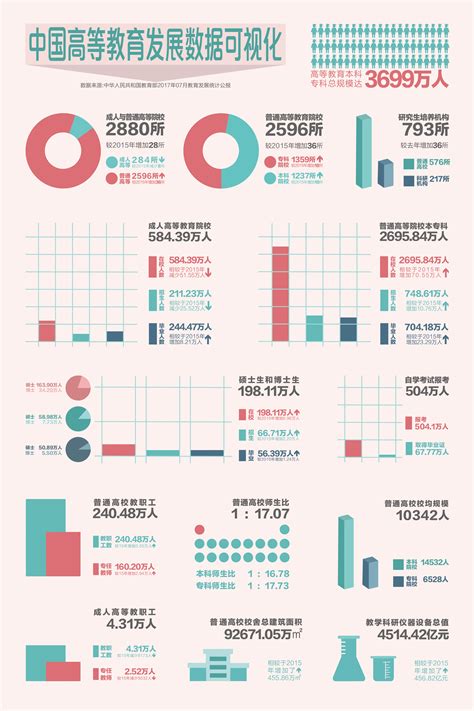高校大数据课程
Title: The Role of Big Data in Higher Education
In recent years, big data has revolutionized various industries, and higher education is no exception. The utilization of big data in academia has transformed traditional teaching and learning methods, student engagement, administrative processes, and decisionmaking. Let's delve into how big data is shaping the landscape of higher education.
Enhancing Student Success

Big data analytics enables institutions to gather and analyze vast amounts of data related to student performance, behaviors, and preferences. By leveraging predictive analytics, educators can identify atrisk students early on and provide timely interventions to improve retention rates and academic outcomes. Personalized learning experiences tailored to individual student needs become possible through datadriven insights, leading to higher student success rates.
Improving Teaching and Learning
Big data tools and learning analytics platforms offer valuable insights into teaching effectiveness and student learning patterns. Educators can track student progress, identify areas of difficulty, and adjust instructional strategies accordingly. By analyzing data on student engagement with online resources, assignments, and assessments, instructors can optimize course materials and delivery methods to enhance learning outcomes.
Optimizing Administrative Processes
Administrative tasks in higher education institutions generate vast amounts of data related to admissions, enrollment, finances, and facilities management. Big data analytics streamlines these processes, improving efficiency and resource allocation. Predictive modeling can forecast enrollment trends, enabling institutions to allocate resources effectively and plan for future growth. Additionally, datadriven insights aid in financial management, identifying costsaving opportunities and optimizing budget allocations.
Enhancing Research Capabilities
Big data has revolutionized research methodologies in academia, enabling scholars to analyze massive datasets and derive meaningful conclusions. Researchers can leverage advanced analytics techniques, such as machine learning and natural language processing, to uncover patterns, trends, and correlations within complex datasets. This facilitates interdisciplinary collaboration and accelerates the pace of discovery across various fields.
Ensuring Data Privacy and Security
While big data offers immense potential benefits to higher education, it also raises concerns regarding data privacy and security. Institutions must implement robust data governance frameworks and adhere to regulations such as the General Data Protection Regulation (GDPR) and the Family Educational Rights and Privacy Act (FERPA). Safeguarding sensitive student and institutional data is paramount to maintaining trust and compliance within the academic community.
Future Directions
Looking ahead, the integration of big data analytics, artificial intelligence, and machine learning will continue to shape the future of higher education. Predictive modeling and adaptive learning technologies will further personalize education, catering to diverse student needs and preferences. Additionally, the proliferation of online learning platforms and digital credentials will create new opportunities for lifelong learning and skill development.
In conclusion, big data holds tremendous potential to transform higher education by enhancing student success, improving teaching and learning, optimizing administrative processes, and advancing research capabilities. However, ensuring data privacy and security remains a critical consideration. By embracing datadriven approaches and leveraging emerging technologies, institutions can navigate the evolving landscape of higher education and prepare students for success in the digital age.
标签: 大数据在高等教育中的应用 高校大数据课程 大数据 教育 大数据高校 高校大数据教育联盟
相关文章
-
景顺成长,探索中国城市化进程中的绿色发展之路详细阅读

在21世纪的今天,城市化已成为全球范围内不可逆转的趋势,中国,作为世界上人口最多的国家,其城市化进程尤为引人注目,随着经济的快速发展,城市化带来的问题...
2025-10-01 293
-
深度解析,股票000777中核科技的投资价值与未来展望详细阅读

在当今的投资市场中,股票投资无疑是一个热门话题,而在众多股票中,股票代码为000777的中核科技因其独特的行业地位和发展潜力,吸引了众多投资者的目光,...
2025-09-30 343
-
深圳证券交易所交易规则,投资市场的指南针详细阅读

亲爱的读者,想象一下,你正站在一个繁忙的十字路口,四周是熙熙攘攘的人群和川流不息的车辆,每个人都在按照交通规则行事,红灯停,绿灯行,黄灯亮起时,大家会...
2025-09-30 306
-
基金202005,揭秘投资背后的逻辑与策略详细阅读

在投资的世界里,基金是一种备受瞩目的投资工具,它以其多样化的投资组合、专业的管理团队和相对稳定的收益吸引了众多投资者的目光,我们将深入探讨基金2020...
2025-09-30 305
-
探索中国平安行销,策略、实践与未来趋势详细阅读

在当今竞争激烈的市场环境中,行销策略对于企业的成功至关重要,中国平安,作为中国领先的金融服务集团,其行销策略不仅在国内市场上取得了显著成效,也为全球行...
2025-09-29 276
-
深入解析数码视讯股票,投资价值与市场前景详细阅读

在当今数字化时代,数码视讯行业作为信息技术领域的重要组成部分,正逐渐成为投资者关注的焦点,本文将深入探讨数码视讯股票的投资价值与市场前景,帮助投资者更...
2025-09-29 333
-
悦康药业,创新与责任并重,引领健康未来详细阅读

在当今这个快节奏、高压力的社会中,健康成为了人们越来越关注的话题,而在医药行业中,有这样一家企业,它以创新为驱动,以责任为担当,致力于提供高质量的药品...
2025-09-29 277
-
深度解析,定向增发股票背后的资本游戏与投资策略详细阅读

在资本市场的棋盘上,股票的每一次变动都牵动着投资者的神经,定向增发作为一种特殊的融资方式,因其能够为上市公司带来资金的同时,也为投资者提供了新的投资机...
2025-09-29 284
